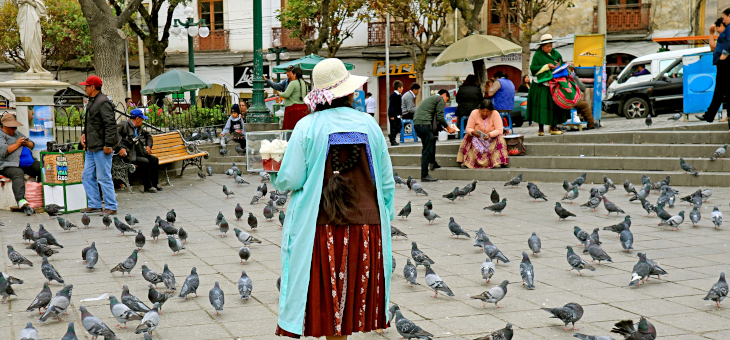Bolivia: Challenging mandate for the new president due to the covid-19 crisis

Event
On 18 October, Luis Arce Catacora of the MAS (Movement Towards Socialism) party won a landslide victory in the general elections. He secured about 53% of the votes, ahead of Carlos Mesa’s (centre-right) 32%. His success allows him to secure the presidency after the first round. He is expected to start his mandate as from mid-November.
Impact
Since the elections had been delayed several times and triggered frequent protests in the polarised country, former long-serving Finance Minister Arce’s undisputed presidential mandate is good news for the president’s legitimacy and the country’s political stability. This is a striking victory after former President Morales – also of the MAS party and declared winner of last year’s unfair elections – had to flee the country and let the centre-right run the country as a caretaker government.
This being said, Arce’s election takes place in the worst economic context since decades. Bolivia’s GDP is expected to plummet by 7.9% this year before potentially recovering by 5.6% in 2021 as covid-19-related containment measures and low global hydrocarbon prices hit Bolivia’s economy hard. As a result, macroeconomic fundamentals have sharply deteriorated. This year, the current account deficit is expected to widen to almost 5% of GDP, general government debt to climb to a 15-year high close to 70% of GDP and the external debt service to be above 20% of current account receipts (a still manageable level though) in the coming years. They will imply necessary and challenging economic adjustments and offer Arce no political honeymoon. This could also increase fragmentation within the MAS party and eventually become a source of political instability.
While claiming to distance himself from Morales who is expected to return from exile, Arce is likely to continue his legacy by maintaining a major economic role for the State and natural resources. He would also have to make the business environment friendlier as an echo to his recent political call for a more inclusive government policy. In the short term, Arce’s biggest risk will lie in handling the pandemic’s health and socioeconomic impacts. Also, stemming the long and rapid decline in foreign exchange reserves – i.e. downsized by more than 70% since the 2014 peak and now covering less than 4 months of imports – will be hard to achieve as large financing gaps are forecasted in the balance of payments for the coming years. This might make the peg of the boliviano to the US dollar no longer sustainable and call for a devaluation rather sooner than later. If not, exchange controls might be adopted and foreign shortages might occur. Bolivia is expected to increase external borrowing to close external financing gaps and to finance the fiscal deficit. External budget support from multilateral institutions is likely in the absence of fiscal space, in combination with unpopular but inevitable large spending cuts and decreased public investments. If the crisis lasts longer, very unpopular measures will have to be taken which could lead to more political instability. Besides, Arce will also have to accelerate the slow economic diversification to reduce the high reliance on ageing hydrocarbon reserves, on oil and gas prices and more broadly on commodities. As a matter of fact, the era of high commodity prices supporting Morales’ left-wing development policies, fiscal policies and substantial poverty reduction is over.
Based on those various risk factors, Credendo’s MLT political risk rating (5/7) is likely to remain under pressure in the one-year outlook.
Analyst: Raphaël Cecchi – r.cecchi@credendo.com